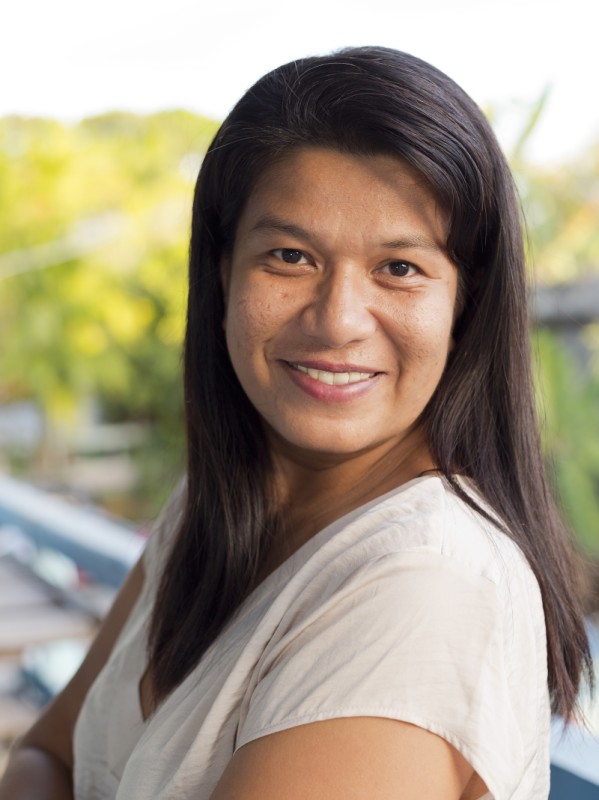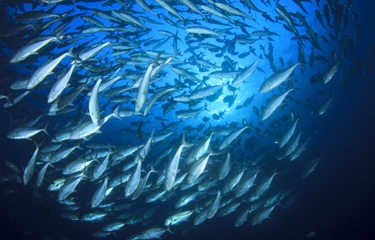The Western and Central Pacific Fisheries Commission (WCPFC) 2021 meeting begins 29 November, as it faces the expiration of its Tropical Tuna Measure guiding fishing controls for bigeye, skipjack, and yellowfin tuna in its jurisdiction.
The regional fisheries management organization, which oversees the conservation and management of highly migratory fish stocks in the Western and Central Pacific Ocean, will meet virtually through 7 December. In December 2020, the WCPFC’s 27 members agreed to roll over its previous Tropical Tuna Measure, but the measure is set to expire in February 2022.
Parties to the Nauru Agreement (PNA) CEO Sangaa Clark said some distant-water fishing member-nations are pushing to use the new agreement to open more fishing opportunities, arguing scientific assessments have found the region’s major tuna stocks to be healthy.
“In the revision of the Tropical Tuna Measure, most distant water-fishing nations see the health of the stocks as an opportunity to ease the management measures in place. PNA and other Pacific Island countries are taking a more precautionary approach, giving greater weight to the uncertainty in the stock assessments and the need for more information on the effects of changes already made to the tropical tuna management arrangements,” Clark told SeafoodSource.
Clark called the Tropical Tuna Measure the “flagship” of the WCPFC’s management rules for the region’s most-lucrative species. Most of the tuna catch in WCPFC waters comes from the exclusive economic zones of the eight PNA member-nations – the Federated States of Micronesia, Kiribati, Marshall Islands, Nauru, Palau, Papua New Guinea, Solomon Islands, and Tuvalu and Tokelau.
Clark said the region’s tuna resources “are the healthiest in the world” largely due to the good governance and the grouping’s vessel day scheme (VDS).
“The tropical tuna measure is generally reviewed every three years, but it is always difficult to reach agreement among the commission members. However, whatever the outcome, the tuna fisheries within PNA waters will continue to be sustainably managed under the PNA vessel day scheme,” she said.
The 17 members of the Pacific Island’s Forum Fisheries Agency (FFA) in its position paper submitted to WCPFC on 29 October, said they will only support a “cautious approach” in making any changes between the previous Tropical Tuna Measure and any new agreement. In the position paper, Fisheries Forum Committee Chair Pene Baleinabuli said while bigeye and yellowfin stocks appear to be healthy, the continued sustainability of the fisheries would be best preserved through continued conservative management.
“There remains a need for a precautionary approach, especially noting the uncertainty in the assessments for these stocks,” Baleinabuli said.
Baleinabuli said Pacific nations’ economies continue to be dependent on their tuna fisheries and said the region’s government will not support changes to the measure that will “jeopardize the stocks that we rely upon.”
Non-government organizations including International Seafood Sustainability Foundation and The Pew Charitable Trusts have urged WCPFC to adopt unambiguous language cementing fishing limits for bigeye, yellowfin, and skipjack tuna.
“These protections must remain in place to ensure that fishing mortality does not increase,” ISSF President Susan Jackson said in a statement. “These protections are necessary until the commission adopts comprehensive harvest strategies, including appropriate target reference points. The WCPFC’s annual meeting must adopt a new and robust tuna conservation measure to prevent the possibility of overexploitation while harvest strategies are put in place.”
Additionally, Pew’s position is that WCPFC should not agree to any major changes to the Tropical Tuna Measure. ISSF, and Pew, along with the Fishing Industry Association of Papua New Guinea and more than 100 retailers, have called for the WCPFC to implement harvest strategies and harvest control rules.
Clark said the COVID-19 pandemic delayed important discussions, including those centering on the adoption of harvest strategies and control rules, and she accused a few WCPFC members of seeking to take advantage of those delays for their own benefit.
“Some distant-water fishing nations have sought to exploit the need for progress in this work to advance their commercial interests at the expense of resource-owning Pacific Island countries,” she said.
Another key issue expected to be discussed in the meeting is the redeployment of fisheries observers aboard fishing vessels. In 2020, in response to the COVID-19 pandemic, WCPFC suspended its requirements for fisheries observers' coverage on purse-seine vessels and that suspension has received several extensions, the most recent running through 15 December, 2021.
Photo courtesy of Rich Carey/Shutterstock







